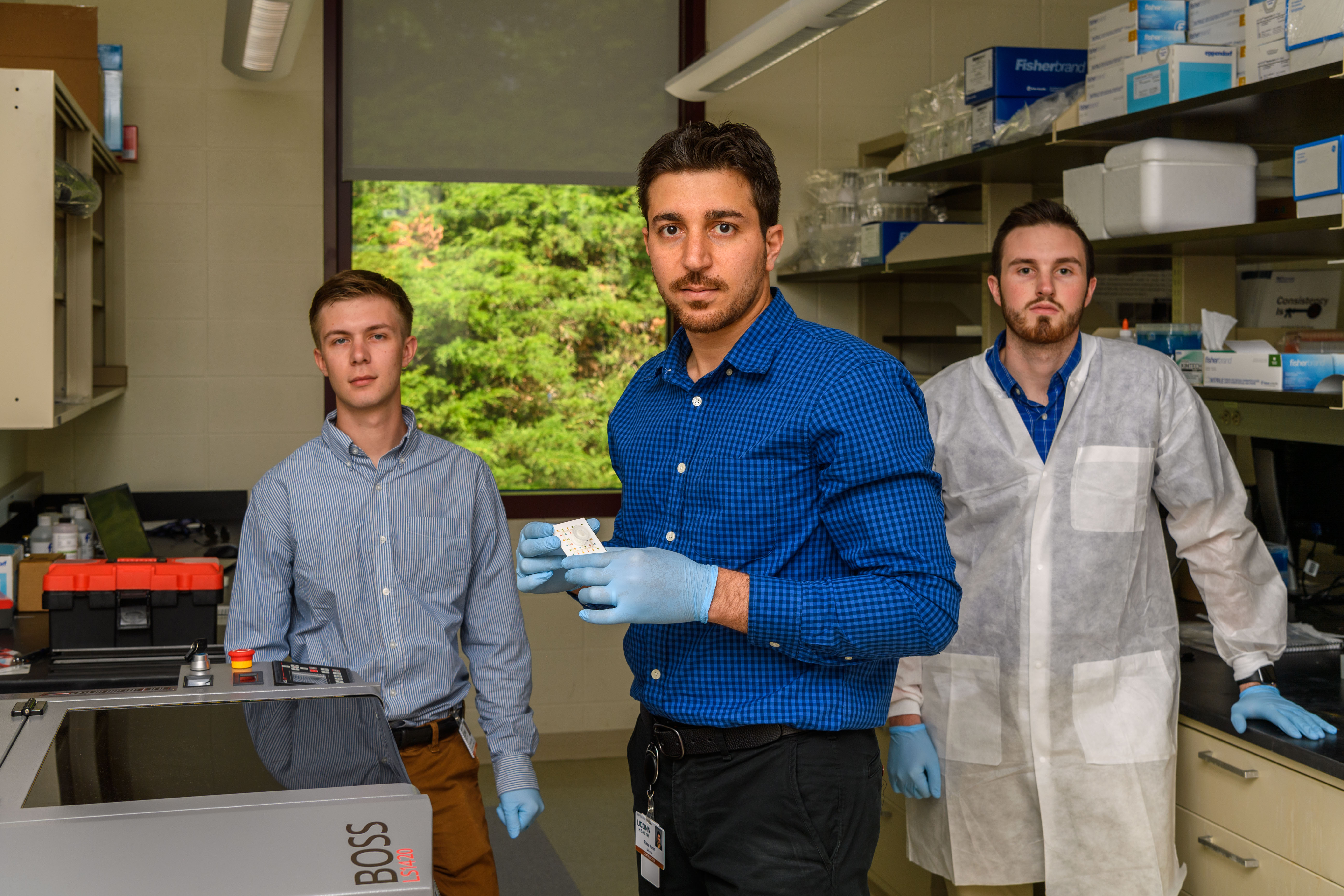
Established in 2003 to accelerate the growth of technology-based startups with a strong connection to the University of Connecticut, TIP has supported over 100 companies. In FY2018, TIP companies employed 118 full-time and 53 part-time employees, and they raised over $96 million in equity, grants, revenue, and debt. (Janine Gelineau/UConn Photo)
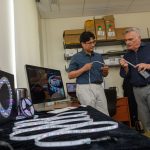
Formed by UConn professor of psychological sciences and physics Edward Large (right), Oscilloscape is a music and audio startup commercializing software based on research in auditory neuroscience that will power the next generation of interactive audio applications. (Peter Morenus/UConn Photo)

The Oscilloscape offices at the Technology Incubation Program (TIP) space at the Cell and Genome Sciences Building in Farmington on June 14, 2019. (Peter Morenus/UConn Photo)
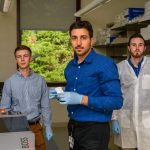
Reza Amin (center) and the team from UConn startup QRFertile are developing an in-home device to measure male fertility. They have taken advantage of several entrepreneurship programs offered at UConn and developed their invention under the guidance of Savas Tasoglu, assistant professor of mechanical engineering. (Peter Morenus/UConn Photo)

The QRFertile lab at the Technology Incubation Program (TIP) space at the Cell and Genome Sciences Building in Farmington on June 14, 2019. (Peter Morenus/UConn Photo)
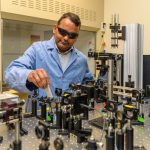
CytoVeris Inc. is a biotech startup aiming to improve patient outcomes in cancer surgery by incorporating optical based “guided surgical tools.” Along with their location at TIP in Farmington, CytoVeris collaborates regularly with UConn biomedical engineer, Guoan Zheng. (Peter Morenus/UConn Photo)
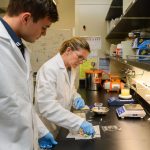
The CytoVeris lab at the Technology Incubation Program (TIP) space at the Cell and Genome Sciences Building in Farmington on June 14, 2019. (Peter Morenus/UConn Photo)
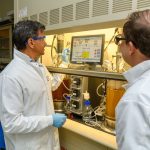
Bactana CEO John Kallassy (left) with the startup's head of research, Simon McManus. Bactana is using a microbiome discovery platform to provide the livestock industry with safe, effective, and inexpensive alternatives to antibiotics. (Peter Morenus/UConn Photo)
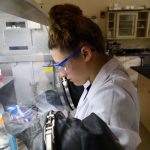
The Bactana lab at the Technology Incubation Program (TIP) space at the Cell and Genome Sciences Building in Farmington on June 14, 2019. (Peter Morenus/UConn Photo)

Jordan Greco, PhD (left) and Nicole Wagner, PhD, from UConn startup LambdaVision meet in a conference room at TIP's location at UConn Health in Farmington, CT. (Carson Stifel/UConn Photo)
From the outside, the Cell and Genome Sciences Building on UConn Health’s Farmington, Connecticut campus doesn’t look all that remarkable. On the inside, the building located at 400 Farmington Avenue is bustling with entrepreneurial activity and scientific discovery.
That’s because the building is home to UConn’s Technology Incubation Program, and 40 high potential startups working primarily in biotech fields.
“TIP is an established program in Connecticut that is known to improve the likelihood of startup success,” says Mostafa Analoui, executive director of venture development and TIP at UConn.
A program within UConn’s Office of the Vice President for Research, TIP supports UConn startups as well as innovative external technology ventures. All TIP startups are able to conduct R&D activities at UConn and benefit from having access to the university’s research infrastructure, specialized equipment, customized business support services, and a pool of talented graduates.
“UConn’s incubator facilities are a critical part of the innovation ecosystem, both for the university community and the entire state,” says Radenka Maric, vice president for research at UConn and UConn Health. “We are committed to supporting high-potential startups that want to grow in Connecticut.”
Follow UConn Research on Twitter & LinkedIn.
